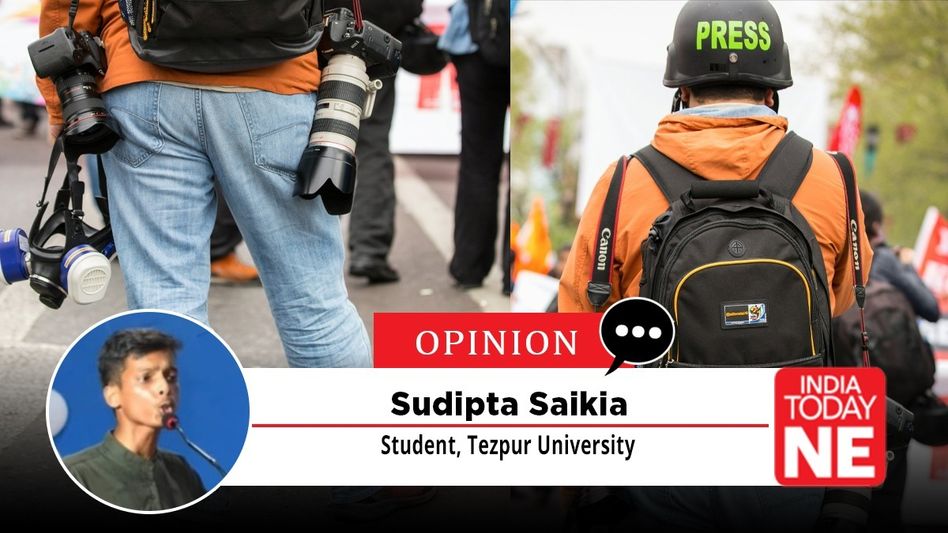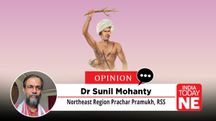National Press Day: Upholding the Pillars of Democracy
National Press Day calls us to recognise the press as both democracy’s conscience and catalyst. Today, we celebrate its triumphs and recommit to the vigilance that keeps freedom alive.

“Freedom of the press is not just important to democracy, it is democracy”- Walter Cronkite
National Press Day, celebrated annually on November 16, marks the formal commencement of the Press Council of India, a statutory, quasi-judicial body that came into being in 1966 to preserve the freedom of the press and maintain and improving the standards of newspapers and news agencies in India, exercising high professional standards. In 1966, after independence, it was felt that the media required its own body to look after its ethics and protect it from outside pressure. This led to the birth of the Press Council of India. Reconstituted as a quasi-judicial autonomous authority in 1979 under an Act of Parliament called the Press Council Act, 1978, the PCI is the "moral watchdog" for the media.
As a watchdog, the media has consistently brought to light issues related to public malfeasance, exposing scams, highlighting developmental deficits, and championing the cause of the marginalised. The power of the press lies in its ability to set the national agenda, generate public discourse, and ultimately compel action from those in authority. It is to this noble ideal that National Press Day pays homage-a commitment to truth, transparency, and public interest. National Press Day symbolises the interplay between freedom, duty, and the evolution of the press in India.
National Press Day is a time to reflect on the huge responsibility vested in journalists and media organisations, and to celebrate the courage of those who work with great personal risk to report the truth. The history of the Indian press is bound up with the very fabric of the nation's struggle for independence. Publications like Kesari, Amrita Bazar Patrika, and the journals of leaders like Mahatma Gandhi were not just newspapers; they were powerful weapons of mass mobilisation, instruments for disseminating nationalist sentiment, and platforms for critiquing oppressive colonial policies.
After independence, the press took on a new role: that of a watchdog meant to hold the new power structures-the Executive, Legislature, and Judiciary-accountable to the sovereign people. It is the institution that provides the essential linkages between the rulers and the ruled, transforming a population into an informed citizenry capable of meaningful democratic participation. National Press Day reminds us of three core themes:
1. Freedom of press: This day underlines that journalists and news agencies should be allowed to work without undue interference, censorship, or compulsion. A free press guarantees transparency, provides checks on power, and gives citizens a voice.
2. Journalistic responsibility and ethics: Freedom carries with it the responsibility to report accurately, fairly, and in the interests of society. This is stressed through the PCI's role in adjudicating complaints and framing ethical guidelines.
3. Reflection on the media's role: The day is one to assess how the media are adapting to changes — technological, economic, social — and highlight challenges such as fake news, threats to journalists, and structural pressures. As an example, the themes chosen in recent years for National Press Day reflect these shifts.
On National Press Day, events are organised by the Press Council of India, media organisations, academic institutions and civil society. The theme for 2024 was “Changing Nature of the Press” — reflecting how media platforms, business models and consumption patterns are transforming. National Press Day 2025 is expected to spotlight issues such as digital safety, fact-checking, and the evolving role of journalists in a rapidly changing news environment. By focusing on contemporary topics, the event encourages collective reflection on press challenges and responsibilities.
National Press Day reminds us of the great role of the press in shaping our democracy. Ever since its inception, the Press Council of India has been vigilantly striving to uphold freedom of the press, maintaining high standards of journalism, and meeting the challenges that face the media. The Council continues to guide and support the media in its relentless efforts towards informing, educating, and empowering the public on issues such as media ethics and press safety, and embracing the challenges of the digital age. National Press Day celebrates the achievements made by the press while reinvigorating the responsibility that comes with it in the interest of creating a more knowledgeable and transparent society, thus securing a strong, free, and responsible future for journalism.
Copyright©2025 Living Media India Limited. For reprint rights: Syndications Today









